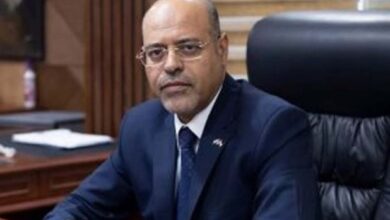Without any formal announcement, President Mohamed Morsy ratified on Saturday a law that allows the government to appoint its loyalists to the Egyptian Trade Union Federation.
The law was ratified amid the political crisis that ensued after Morsy issued a constitutional declaration immunizing his decisions from judicial appeal and granting him absolute powers. More than 500 people have been injured in protests and clashes over the declaration since Friday, and a Muslim Brotherhood member was killed.
This is the first law to be decreed by Morsy following his 22 November declaration, which granted his decisions immunity against challenges.
According to the new law, the manpower minister, who is affiliated with the Muslim Brotherhood, may appoint workers who are members of the group in leadership positions that would become vacant in the ETUF, which has always been affiliated with the government.
The new law canceled Article 23, which allowed union membership without age limit. It also grants the minister the right to appoint board members of unions if the minimum required number of members is not attained for any reason, to fill the vacant seats on the board.
Labor activists fear the law paves the way for Brotherhood control of the federation.
The law also extends the session of the boards by six months.
State-controlled unions have monopolized the country’s trade union movement since 1957. However, the monopoly was weakened with the establishment of the first independent trade union in December 2008.
The 25 January revolution served to further dissolve this monopoly by giving workers the chance to establish independent unions.
But the ETUF still has a significant role in the country, since it represents about 2.5 million workers in 23 unions.
Ahmed Abdel Zaher, chairman of the ETUF, criticized amendments to the law.
The amendments, he said, violate international agreements Egypt had signed with the International Labor Organization, especially those related to trade unions’ freedom from governmental interventions.
Abdel Zaher told news website Sada al-Balad that Manpower Minister Khaled al-Azhary had introduced the amendments without consulting the ETUF.
Abdel Zaher said amendments to the law could prompt the ILO to blacklist Egypt as one of the states breaching trade union freedoms and allowing government intervention in labor affairs.
The head of the ETUF explained that the minister contradicted the ILO’s rules which do not specify an age for trade union members’ retirement. He argued that ILO’s director, Guy Ryder, is himself over 60, and added that the ILO prohibits government meddling in trade unions’ organizational affairs.
Kamal Abu Eita, head of the Egyptian Federation of Independent Trade Unions, said federation members would attend the Tuesday demonstrations to protest the new labor law, adding that they plan to confront the amendments with partial and all-out strikes.
Abu Eita told independent daily Youm7 that the president had gone too far on using his legislative powers. He added that Morsy’s decision won him and the Brotherhood new foes, arguing that amendments to the labor law seek to "Brotherhoodize" trade unions.




